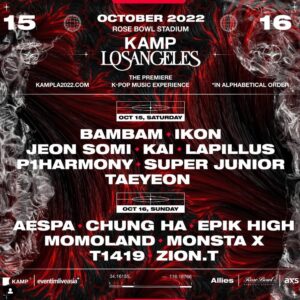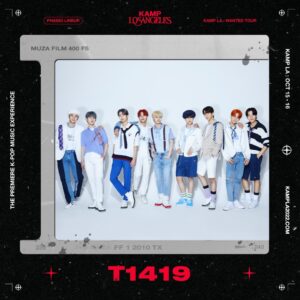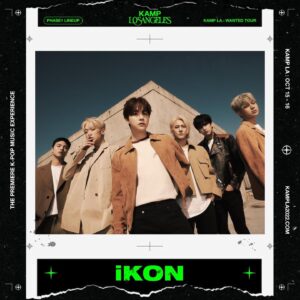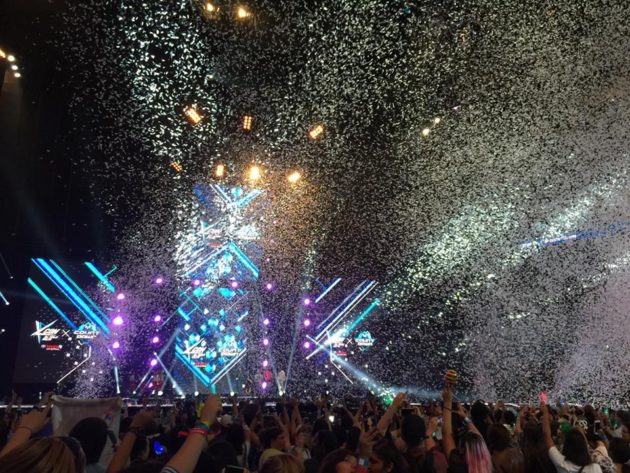
In recent years, Los Angeles, California has become a hot spot for K-pop concerts with different acts coming every month. Along with tours, there are K-pop festivals like KCON, Korean Times Music Festival, and Head in the Clouds.
About two months ago, KAMP Global seemingly appeared out of nowhere and began advertising a K-pop festival that seemed too good to be true. Their line-up included acts like Monsta X, Kai, Aespa, and Super Junior. The festival had plenty of hype from the artists themselves who were also advertising the event via their own social media accounts. Little did everyone know, KAMP Los Angeles would end up being a flop.
Just a few days before the event, tickets were not only discounted, but free tickets were also credited to several people’s accounts that had entered raffles. Due to this splurge of free tickets, tickets on resale sites like StubHub were selling for as low as 1.00 USD in the same locations that were originally at full price. Adding insult to injury, the set-up stage was moved forward, using only half of the arena, which suddenly changed the view of those who had bought tickets early. Those who originally had good seats were now almost behind the stage.

On the day before the concert weekend, while KAMP Global remained quiet, K-pop idols took their social media accounts to indicate issues with their visas at the airport. KAMP Global finally released their statements on Saturday, the first day of the concert, letting attendees know that six acts — Zion T., Jeon Somi, Taeyeon, Lapillus, Bambam, and Kai — would not be performing at KAMP Los Angeles. There was a refund offer but only for the first day of the festival. Attendees took to their social media to lament about the money already spent on hotels, travel, and tickets which led to comparisons to the infamous Fyre Fest.
Unfortunately, after KAMP Global’s announcement, Starship Entertainment released a statement that Monsta X would also not be performing on Sunday. They also called out KAMP Global for not letting fans know in the initial statement, and also for not doing their part in the visa process. SM Entertainment later released a similar statement, which indicated that the fault was entirely on KAMP Global as well. In their second statement, KAMP Global did not admit to any fault stating that it was out of their control despite their efforts. They did, however, offer a refund for the second day of the festival.

Additionally, to compensate for the fact that so many acts were lost on day one, Momoland‘s and T1419‘s (now known as TFN) schedules were changed to perform on both days. The other performers also had their sets extended. However, the event was still drastically cut down, and was now ending two hours early.
Despite the disappointments and low attendance, every act at KAMP Los Angeles did its best to pump up the crowd while only vaguely referring to the contraversy. The artists were well aware of the issues, in fact. P1harmony was the first act, and they humorously thanked everyone who did show up. Tablo of Epik High did not hold back his comments regarding the incidents, conveying them through several jokes. He also gave a shout-out to the acts that wanted to come but could not make it due to no fault of their own. In general, everything was kept light-hearted to keep a positive mood.
The event was probably best for both iKon and Super Junior fans who so rarely get to see these groups in the states. The standing crowd was not as dense as a normal concert which gave everyone an opportunity to go up close to the their favorite K-pop idols.

There were a few bumps– issues with translators, wrong music playing, and even some rain– however, the event itself went rather smoothly. It was a decent concert festival due only to the musical artists that took it upon themselves to make the event worth coming to despite the horrible circumstances.
Across social media, there was much speculation about what exactly happened with KAMP Los Angeles. Some say they ran out of money due to low ticket sales, and others say they intentionally frauded their attendees. Perhaps they did have honest intentions but were unaware of the lengthy visa process in the United States. However, it is unclear why the musical acts were not notified ahead of time that their visas were not properly processed instead of finding out at the airports.

KAMP Global may have also been overly optimistic by selecting such a huge venue. To put things into perspective, KCON is usually held at the Crypto Center which has the capacity to fill 20,000 people. In contrast, the Rose Bowl Stadium, where KAMP Los Angeles was held, is a venue that can potentially fill 92,542 people. When BTS used the Rose Bowl Stadium for their 2-day concert in 2019, there were 113,040 in attendance in total, meaning they filled about 56,000 per night. Despite being new to Los Angeles, KAMP Global originally held an event in Singapore with similar issues regarding low ticket sales.
There was plenty of marketing for KAMP Los Angeles. However, with high ticket prices and only two-day tickets originally offered, perhaps it was too expensive for most fans. Also, Head in the Clouds and KCON both had just recently occurred in August, and maybe fans just did not need another festival so soon.

We already know that K-pop festivals can be successful in Los Angeles. Perhaps, the two concert attempts will be a lesson learned for KAMP Global. Hopefully, they learn that if things are not going to plan, it is best to be completely transparent about any changes. Personally, I do not think KAMP Global will be having any other concerts in the United States again due to their now tarnished reputation.
(Youtube. Images via KAMP Global and CJ E&M.)

